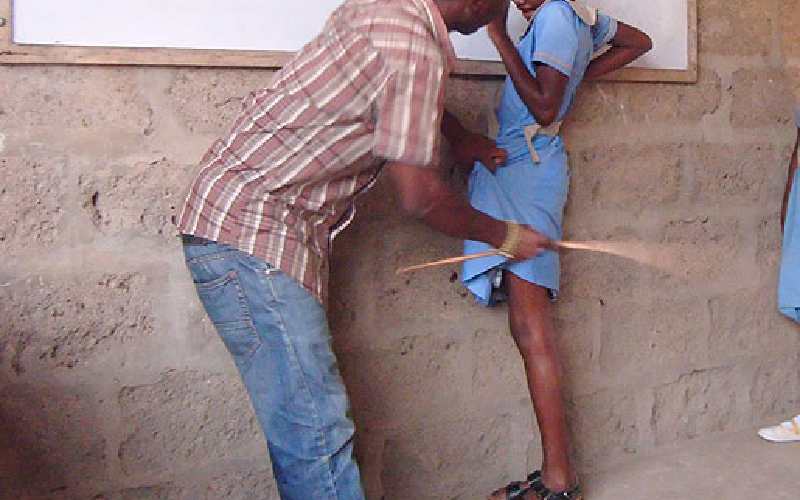×
The Standard e-Paper
Smart Minds Choose Us

A teacher on duty caning a pupil after she arrived in school late. [Courtesy]
Part of the national examinations for Agriculture students in secondary school is to grow a certain crop to maturity. It was maize in 2001 when I sat the national secondary school examinations but there was a shocker for some of my classmates when they found that someone had slashed their way through their plots and there was nothing to harvest.